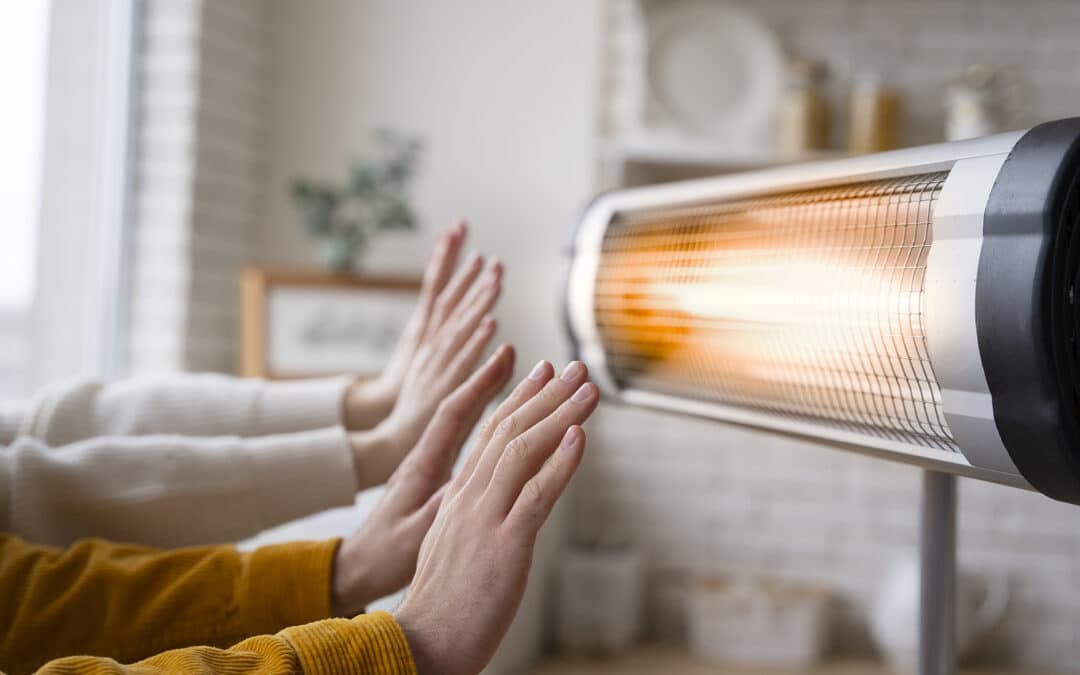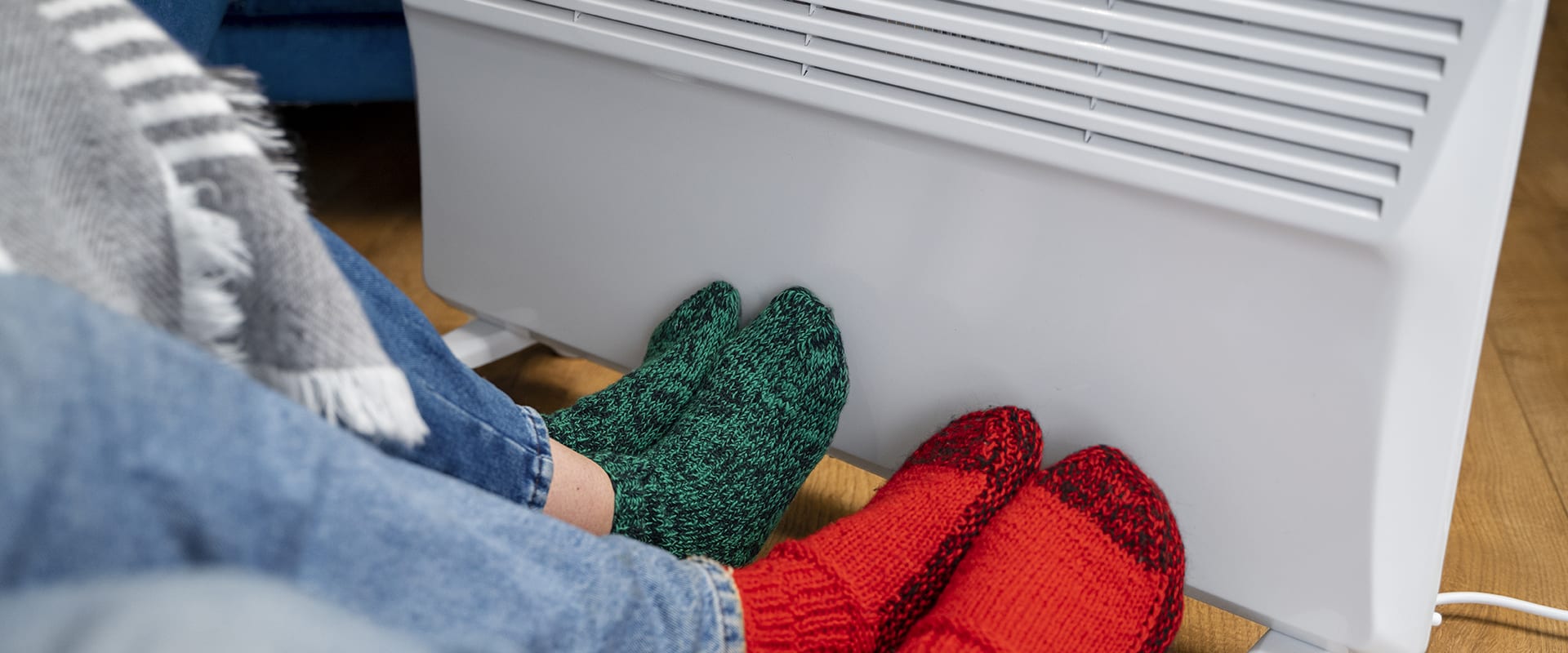Choosing the heating system for your home is an important decision that can have a significant impact on your comfort, energy costs and the environment. It is therefore essential to take the time to think carefully about your needs and budget before making a choice. In this article, we will look at the important criteria that you need to take into account when choosing the right heating system for your home. We will also discuss the pros and cons of each option to help you make an informed decision.
The different types of heating systems available on the market
When it comes to choosing a heating system for your home, it is important to know the different types of heating systems available on the market. Each heating system has its pros and cons depending on your needs and budget.
- Central heating: Central heating is a common heating system in modern homes. It uses a piping system to transport hot air throughout the house from a single heat source, such as a boiler or heat pump. The advantages of this type of heating system are its ability to evenly heat an entire house and offer precise temperature control.
- Gas heating: Gas heating is a popular choice for homes, especially in areas where natural gas is readily available. It uses natural gas to produce heat, which is then diffused into the house through a piping system. The advantages of this type of heating system are that it is usually cheaper than electricity and it offers fast and efficient heating.
- Electric heating: Electric heating is another common choice for homes. It uses electric heaters to heat each room individually. The advantages of this type of heating system are that it is easy to install, offers temperature control flexibility for each room, and does not require fuel to operate.
- Wood heating: Wood heating is a popular choice for rural homes or for people who want to be greener. It uses wood as fuel to produce heat. The advantages of this type of heating system are that it is environmentally friendly and economical, but it can be difficult to install and maintain.
- Radiant heating: Radiant heating uses heating panels to diffuse heat into a room. The advantages of this type of heating system are that it is energy efficient and offers comfortable and quiet heating.
It is important to consider all these different types of heating systems and consider the pros and cons of each before making a decision. Choosing the right heating system for your home can save you money in the long run and improve your comfort at home.
The advantages and disadvantages of each type of heating system
When it comes to choosing the right heating system for your home, it’s important to know the pros and cons of each type of system. Here is a list of the advantages and disadvantages of the most common heating systems:
- Gas central heating: Gas central heating is one of the most common and popular heating systems due to its energy efficiency. Benefits include easy and inexpensive installation, as well as lower operating costs than electrical systems. However, disadvantages include the risk of gas explosion or leakage and the need for regular maintenance to avoid harmful gas emissions.
- Electric central heating: Electric central heating is also popular because of its simplicity and efficiency. Benefits include easy and inexpensive installation, uniform heat throughout the house, and no harmful gas emissions. However, disadvantages include high operating costs, especially in very cold weather, and overall energy inefficiency.
- Oil central heating: Oil central heating is a common heating system in rural areas. Benefits include consistent, uniform heat, as well as lower operating costs than electrical systems. However, the disadvantages include high upfront costs for installing the oil tank, harmful gas emissions and dependence on fuel supply.
- Heat pump: The heat pump is a relatively new and environmentally friendly heating technology. Benefits include high energy efficiency, easy and inexpensive installation, and low carbon footprint. However, disadvantages include high initial cost and reduced efficiency in very cold weather.
- Wood heating: Wood heating is a popular choice for homes located in rural areas. The benefits include low initial cost and reduced operating costs compared to electricity and gas systems, as well as a renewable and sustainable heat source. However, disadvantages include dependence on wood supply, harmful particulate emissions, and the need for regular maintenance.
When choosing the right heating system for your needs, it’s important to consider these pros and cons, as well as installation costs, operating costs, and environmental footprint.
How to determine your heating needs based on your home and lifestyle
When it comes to choosing the right heating system, it’s important to determine your heating needs. The size of your home, the number of occupants, the rooms you use most often, your budget and your lifestyle are all factors to consider when selecting the appropriate heating system.
The first step is to assess the size of your home and the number of rooms that need heating. If you have a large house with several rooms, you may want to opt for a central heating system that can be distributed throughout the house. If you have a small house or apartment, a radiator or underfloor heating may be sufficient.
Next, you need to determine which parts you use most often. If you spend most of your time in the living room and kitchen, you may want to opt for a heating system that can be set separately for these areas. If you work from home in a specific room, a space heater may be more appropriate.
It’s also important to consider your budget. The most efficient heating systems may be more expensive to purchase and install, but can be more economical in the long run. Cheaper heating systems may seem more affordable to buy, but can cost more to use.
Finally, your lifestyle can also influence the choice of your heating system. If you are often away from home, a programmable thermostat can be useful to adjust the temperature of your home according to your habits. If you have children or seniors living with you, you may want to opt for a safer heating system that doesn’t pose a burn or fire hazard.
By determining your heating needs based on your home and lifestyle, you can choose the heating system that best suits your situation. This will help you save money and maximize the comfort of your home.
Factors to consider when planning your heating budget
The factors to consider when planning your heating budget are numerous and can vary greatly depending on your personal situation. However, there are a few key things you need to keep in mind when determining your budget.
The first factor to consider is the initial cost of the heating system itself. Some systems are more expensive to install than others, but may end up being more economical in the long run due to their energy efficiency. For example, electric heating systems are often cheaper to install than gas central heating systems, but can end up costing more in the long run due to their high energy consumption.
The second factor to consider is the cost of the energy itself. Energy costs can vary greatly depending on where you live and the type of energy you use. For example, electricity costs may be higher in some regions than others, while natural gas costs may vary significantly depending on market price fluctuations.
The third factor to consider is the cost of maintaining and repairing the heating system. Some systems require more maintenance and repair than others, which can result in additional costs in the long run. For example, gas heating systems may require expensive repairs in the event of a gas leak, while electric heating systems may require costly repairs in the event of a heating unit failure.
Finally, it is important to consider the costs of installing and maintaining heating accessories such as programmable thermostats and replacement filters. While these costs are usually lower than the initial cost of the heating system itself, they can add up over time and need to be factored into your budget planning.
With these factors in mind, you can determine a realistic heating budget that takes into account your heating needs, financial situation and lifestyle.
Tips to save money on your heating bill
Heating costs can be reduced by adopting simple and efficient practices. Here are some tips to save money on your heating bill:
- Use a programmable thermostat: A programmable thermostat allows you to adjust the temperature of your home according to your schedule, reducing the temperature when you are away from home or at night. This can save you up to 10% on your heating bill.
- Insulate your home: Good insulation reduces heat loss and helps maintain a constant temperature in your home. Investments such as attic insulation, double-glazed window installation, and wall insulation can help you save money on your heating bill in the long run.
- Avoid drafts: Drafts can lower your home’s temperature quickly, forcing your heating system to work harder to maintain the desired temperature. Be sure to close all doors and windows, and seal cracks and holes in walls and ceilings.
- Use thick curtains: Thick curtains can help block drafts and keep heat inside your home. Feel free to use them in winter to keep your home warm.
- Have your heating system serviced: A poorly maintained heating system can run less efficiently, resulting in additional costs. Hire a professional to perform regular maintenance on your heating system, cleaning and replacing filters.
By following these simple tips, you can save money on your heating bill while keeping your home cozy and warm during the winter months.
Conclusion: How to Choose the Right Heating System for Your Needs and Budget
Selecting the right heating system for your home is essential for your comfort and satisfaction. Keeping in mind the important criteria for choosing the right heating system, the different types of heating systems available on the market, the advantages and disadvantages of each type of heating system, determining your heating needs according to your home and lifestyle, as well as the factors to consider when planning your heating budget, You can make an informed decision on which heating system will best suit your needs and budget.
However, even after choosing the right heating system for your home, you can still save money on your heating bill. Tricks such as installing a programmable thermostat, insulating your home, regularly maintaining your heating system, using thick curtains and carpets to keep your home warm, as well as optimizing the use of your heating system can help you save money on your heating bill.
Ultimately, choosing the right heating system will depend on many factors, including your personal preferences, budget, the size and design of your home, and your lifestyle. By keeping these factors in mind and following the tips to save money on your heating bill, you can find a heating system that will meet your needs while saving money in the long run.


